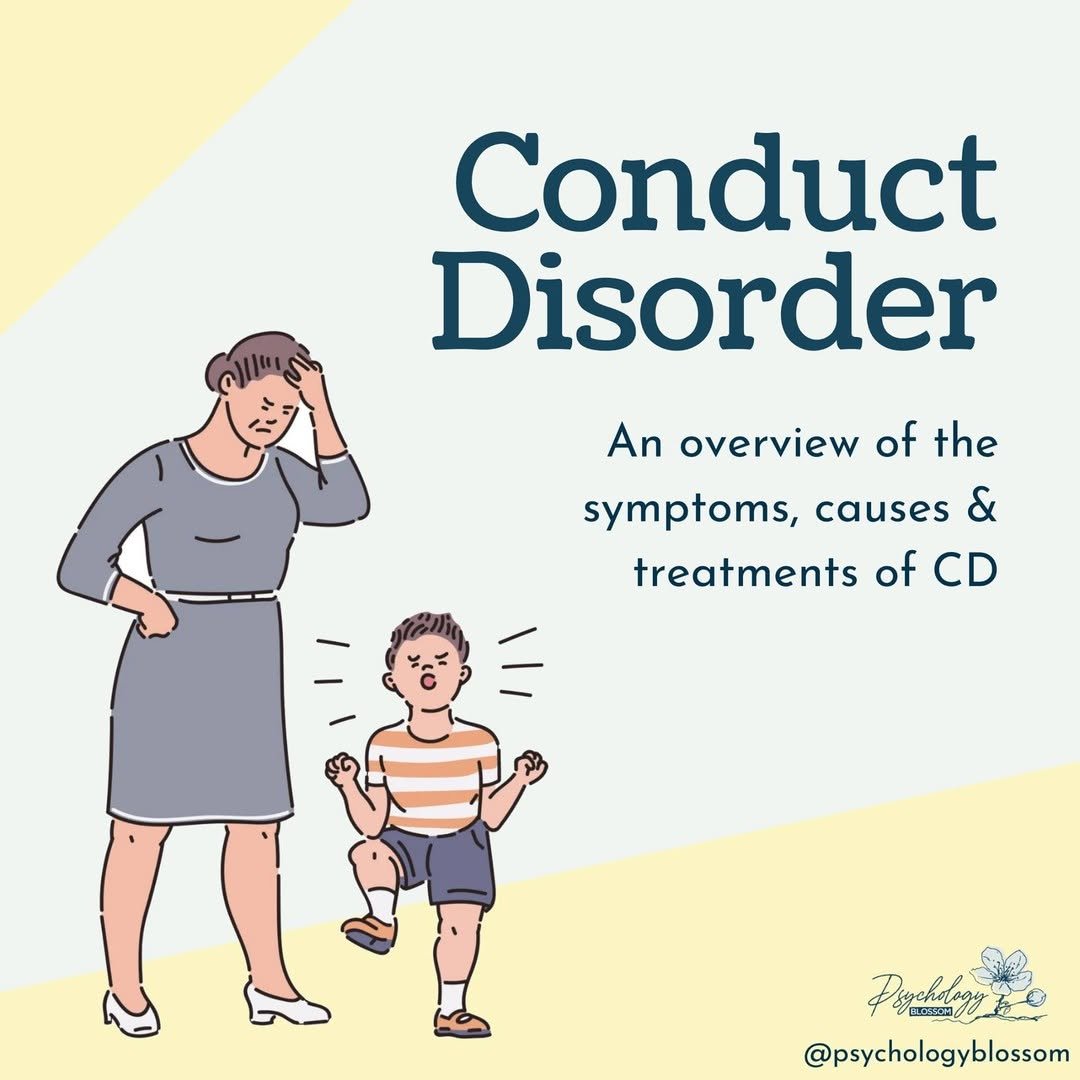Conduct Disorder is a persistent pattern of behaviour in children and adolescents in which they repeatedly violate the rights of others or disregard fundamental social rules. These behaviour patterns manifest across multiple settings—home, school, and social environments—and significantly impair a young person’s ability to function in academic, social, and family contexts. The disorder can appear as early as before the age of 10 and, if left untreated, may persist into adolescence and adulthood, potentially developing into more severe personality or behavioural disorders.
Characteristics
- Difficulty feeling and expressing empathy or remorse, often seeming indifferent to the suffering of others
- Inability to interpret or respond appropriately to social cues
- A tendency to misinterpret ambiguous actions as hostile or aggressive, leading to overreactions
- Frequent escalation of situations into conflict or confrontation
Children and adolescents with Conduct Disorder often struggle with emotional regulation, which intensifies their aggressive or antisocial tendencies. Unlike occasional misbehaviour, these traits are persistent and consistent, making them disruptive in almost every setting of the child’s life.
Behavioural Signs
- Aggressive behaviour that causes or threatens harm to others or animals, such as bullying, initiating fights, or animal cruelty
- Non-aggressive but destructive behaviours, including vandalism or arson
- Deceitfulness or theft, including burglary, lying, shoplifting, or manipulating others for personal gain
- Serious rule violations, such as skipping school, breaking curfews, or running away from home
- Risk-taking and impulsive actions that endanger themselves or others
These behaviours often cause significant distress to families, educators, and peers, and they tend to escalate if not properly managed with timely intervention.
Factors Impacting Conduct Disorder
It is important not to label or stigmatise children with Conduct Disorder as “bad” or “troublemakers.” There are multiple underlying causes, both genetic and environmental, that interact to influence the development of this disorder. Recognising these risk factors allows professionals and families to intervene earlier and more effectively.
✽ Genetic or Biological Factors
- Family history of Conduct Disorder or other related conditions
- Presence of other mental illnesses such as Schizophrenia, Depression, or Bipolar Disorder
- Neurological impairments, particularly involving the frontal lobe, which regulates impulse control, judgment, and emotional regulation
- Lower resting heart rates and abnormal stress hormone responses have also been noted in some children with Conduct Disorder
✽ Environmental Factors
- Disorganised or unstable home environments with exposure to alcohol abuse, domestic violence, neglect, or parental inconsistency
- At-risk neighbourhoods characterised by high crime rates, peer delinquency, and frequent exposure to violence
- Lack of consistent supervision or involvement from caregivers
- Economic hardship and poverty, which often limit access to supportive resources
It is the interaction of these biological vulnerabilities and environmental stressors that often determines the severity and progression of Conduct Disorder.
Conduct Disorder Therapy and Treatment
If a child demonstrates persistent signs of Conduct Disorder, early intervention is crucial. Without treatment, these behaviours can escalate into antisocial personality disorder or criminal behaviours in adulthood. Mental health professionals can provide accurate assessment, diagnosis, and treatment, equipping young people with coping mechanisms and emotional regulation skills necessary to navigate developmental milestones successfully.
Treatment approaches often involve a combination of therapy, family involvement, and sometimes pharmacological support if co-occurring conditions are present.
✽ Cognitive Behavioural Therapy (CBT):
CBT helps youths identify distorted patterns of thought, challenge aggressive or hostile interpretations of events, and reframe experiences. It also teaches emotional regulation, problem-solving, and impulse control strategies.
✽ Behavioural Therapy:
This approach focuses on unlearning antisocial behaviours through reinforcement of positive actions and setting clear, consistent behavioural expectations. Structured behavioural programs may include reward systems and contingency management.
✽ Family Therapy:
Family-based interventions address dysfunctional family dynamics and empower parents to manage challenging behaviours effectively. Parents learn strategies to improve communication, strengthen relationships, and reinforce their child’s self-esteem and self-image.
✽ Peer Group Therapy:
Peer group therapy creates opportunities for young people to build and practice interpersonal skills, learn conflict resolution, and engage in prosocial interactions in safe and structured environments.
How Else Can Parents Support Their Child?
- Educate themselves about Conduct Disorder to better understand its symptoms, risks, and treatment
- Increase parental monitoring and set firm, consistent rules with clear consequences
- Stay patient and calm even when their child is oppositional, to avoid escalating conflicts
- Be actively involved in their child’s treatment process, reinforcing the skills learned during therapy
- Provide encouragement and positive reinforcement to motivate change and promote resilience
Raising a child with Conduct Disorder can be emotionally exhausting, but a proactive and compassionate approach can significantly improve outcomes. Seeking professional help early, combined with a supportive home and school environment, can reduce the long-term impact of this disorder.
We recommend This Video to those who wants to learn more about Conduct Disorder.
